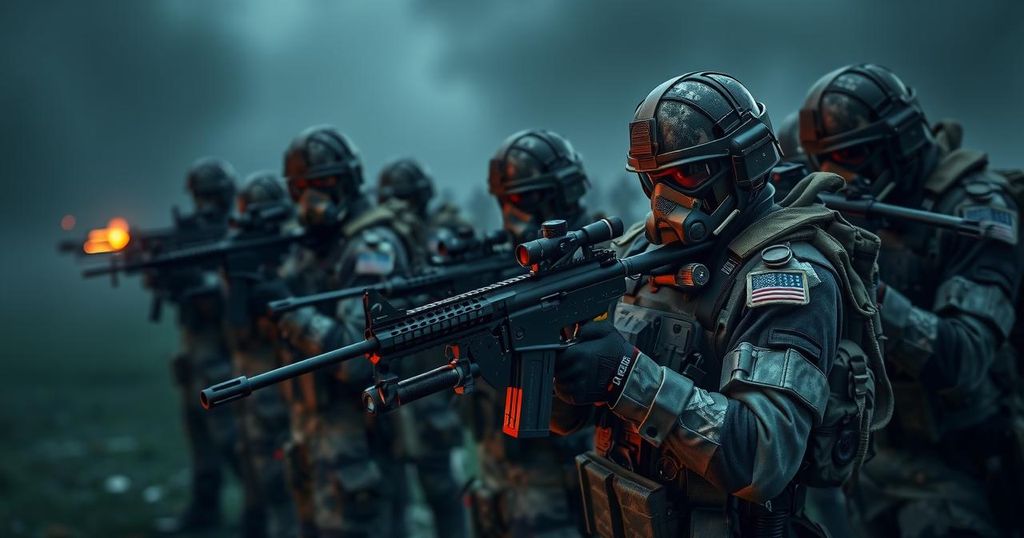Future Scenarios for the Wagner Group After Rebellion Failure
The Wagner Group, after a failed rebellion, faces several potential futures, including relocating to Belarus, integrating into the Russian military, or continuing operations abroad. Approximately 1,000 fighters are reported to have moved to Belarus. The group may also rebrand to maintain its global operations, especially in Africa, while Prigozhin’s future remains uncertain.
The Wagner Group, having recently attempted an armed rebellion against Russian military leadership, finds itself at a crossroads following the quick dissolution of the uprising. With Yevgeny Prigozhin’s exit to Belarus secure, analysts posit that this will not spell the end for the mercenary outfit. Potential outcomes include personnel relocating to Belarus, enlisting in the Russian military, or remaining in their home regions. Reports indicate that approximately 1,000 fighters are already in Belarus, though not all have chosen to follow Prigozhin. Some are still stationed in Russia’s Krasnodar region and the conflict-affected areas of Donbass and Luhansk. Additionally, a lack of adequate compensation from the Russian state may deter many from joining official military ranks.
As Wagner has established a presence on multiple continents, particularly in Africa, experts predict it may rebrand and continue its operations abroad. There is speculation about Prigozhin potentially maintaining some control over Wagner’s African engagements, despite his uncertain status following the rebellion’s failure. Analysts note that an abundance of paramilitary organizations within Russia makes Wagner’s continuation inevitable, albeit under a new guise or leadership. Therefore, while the future is unclear for Prigozhin personally, it appears the Wagner Group may persist even beyond his involvement.
The Wagner Group, a private paramilitary organization, has operated widely across conflict zones in Eastern Europe, Africa, and the Middle East. Recently, it attempted an armed uprising against the Russian military command, which lasted approximately 36 hours before being quelled. Following the resolution of this crisis, Yevgeny Prigozhin, the group’s leader, has reportedly relocated to Belarus, leaving the future of the organization uncertain. Observers are now debating the potential paths forward for Wagner and its fighters amid these events.
In conclusion, the Wagner Group’s future remains multifaceted after its failed rebellion. Options for fighters include transitioning to the Russian military, relocating to Belarus, or continuing operations in regions like Donbass. With a presence established in various countries, particularly in Africa, Wagner may evolve or rebrand to maintain its influence. As Prigozhin’s fate hangs in the balance, the organization is poised to adapt, regardless of its leader’s direct involvement.
Original Source: telegrafi.com




Post Comment